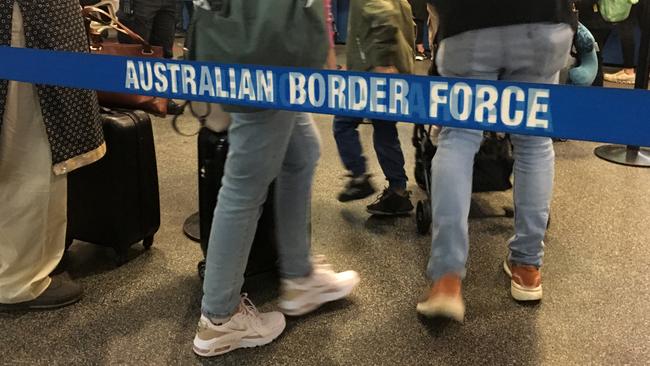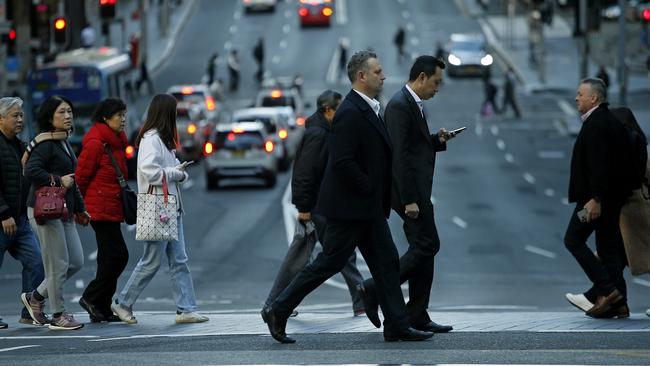The country set to take over Britain as Australia’s leading source of immigrants
Britain has held sway as this nation’s leading source of immigrants since 1788 – but a switcheroo is on its way.

Come with me on a journey through time. Not so much to landmark historical events but to everyday life – to the way we thought, worked and prioritised – at five-yearly intervals. How far back would we need to go before we, the people of 2025, wouldn’t be able to recognise what we think of as the Australian way of life?
Five years ago, just a few months into the pandemic lockdowns, there was panic-buying in supermarkets. What is it that a people who (collectively) haven’t been subjected to the privations of war or depression most covet in such worrying times? Toilet paper, of course.
Within months we became accustomed to the use of QR codes, to the idea of social distancing, to the technology of Zoom calls, to the bizarre notion of working from home. Many of the behaviours learnt at that time linger still. For many, working from home has been reimagined as a sovereign right.

Ten years ago I recall animated discussions at conferences about how China was becoming increasingly Westernised in its consumer preferences (eg its taste for Australian wine). The thinking was that this would lead to a broad cultural alignment between China and the West. It was also around 2015 that terms such as “woke” and “diversity, equity and inclusion” entered the lexicon. These concepts have deeper roots, of course, but that’s when the words appeared in our everyday language.
And five years before that, in 2010, we were immersed in a resources boom largely driven by the meteoric rise of China’s economy. This was a time of plenty for Australia that followed in the wake of the global financial crisis. Other economies flailed while Australia’s surged.
Across these five-yearly intervals, some themes remained a constant – like calls for action on climate change – while others lived in just that moment. So what can we say about future five-yearly intervals?
By 2030, the number of Australians born in India is likely to outnumber those born in the UK. Britain has held sway as this nation’s leading source of immigrants since 1788. This imminent Indian-UK switcheroo could lead to a national conversation about Australian identity and destiny in the 21st century. Sign me up for that conversation!

By 2035 about a third of the remaining Baby Boomer generation will have entered the stage of the life-cycle that requires intensive healthcare. This will impact federal and state budgets and place a strain on resources and the labour market. It’ll be a time of anxiety for Millennials with elderly parents; it might even be a time of religious revival as Boomers scramble to make good with their maker.
By 2040 the Boomer generation will be dwindling, and the world population will have passed nine billion. Australia’s stocks will surely rise in this resource-hungry world. This country’s most valuable assets in the 2040s will be its alliances, its capabilities and (I hope) its galvanised sense of community and pride.
Sometimes it takes a process to uncover truths about human behaviour that might be otherwise blurred by time and memory. It’s only when comparing intervals that we get to see where we’ve been, where we are, and where we might be headed. And what we might need to do to ensure the best outcome for all.








To join the conversation, please log in. Don't have an account? Register
Join the conversation, you are commenting as Logout